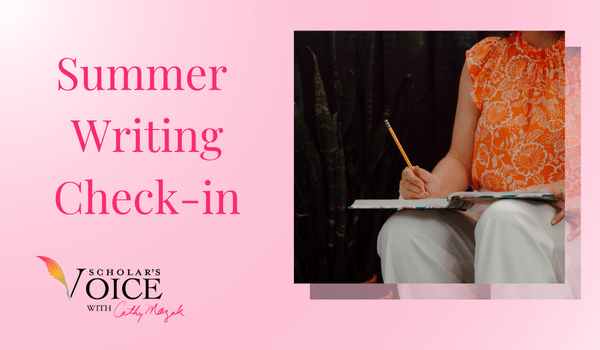Types of Writing Help

It’s completely acceptable to get help with your writing, even as a full professor. So what does that look like in academic writing? I’m giving you the lowdown on what’s available for writing help.
MORE DETAILS
It’s important to understand that it is absolutely ok to get help with your writing. Savvy academics get help in a variety of ways in order to shape their writing into the best finished product it can be. On this episode of The Academic Woman Amplified I’m giving you an overview of what writing helps are available out there, from the many types of editors to coaches, and giving you the encouragement to find the right one for you.
Authorship
Different academic fields handle authorship differently. Science-based fields may attribute authorship to lab participants or people who contribute graphs, statistics, etc. In the humanities authorship is generally attributed only to those who actually write words for the publication.
However your particular field approaches this, getting writing help doesn’t affect whether or not you are a “real” author of your project. Ghostwriting is a no-no in academia, but getting editing or coaching help is not the same as ghostwriting. It is not only acceptable, it’s advisable! Don’t rely on your publishing house to proofread your work; be sure it’s in impeccable shape before submitting.
Editors and What They Do
While the word ‘editor’ is used often, there are several different types of editors and the work they do is very different. Let’s break down the different types so you can get a clear picture of what you may want in an editor.
1. Journal or book editor. This type of editor isn’t someone you can hire to help with writing. They are content curators, choosing which pieces work for their journals and publishing houses. What they do:
- Curate content for their publications
- Decide if a piece needs extra work or whether to send it out for review
- Facilitate the process of getting work published
2. Proofreaders. This kind of editor performs surface level editing tasks. They work with you on minor tweaks of a finished piece of work. What they do:
- Check formatting, spelling and grammar
- Take a last look at your completed piece
3. Copy Editors. This kind of editor goes a bit deeper than a proofreader. What they do:
- Check formatting, spelling, grammar
- Give a little more feedback on the writing itself
- Look for inconsistencies in language, style
- Check a text against the reference list
4. Substantive Editors. This kind of editor goes more deeply with you into the writing itself. You may use this kind of editor earlier in the writing process, or with a rougher draft. What they do:
- Address clarity and style
- Revise sentence structure and structure of the piece itself
- Help rewrite sections
- Check structure, tone, style and organization of the piece
5. Developmental Editors. This kind of editor is involved early in your writing process, helping you develop the piece. They provide the kind of help your PhD advisor may have given you while writing your dissertation. What they do:
- Help advise you on the direction your content should take
- Let you know if you need more references, deeper explanations, or a different approach
- Advise you on the best way to make your argument, or how to structure your information to tell the story you want
“Getting editing help is not cheating.”
Coaches and What They Do
Writing coaching is another kind of help that is available to academics. While some writing coaches also provide editing services, most coaches have a different focus. Rather than reading and providing feedback on your writing like editors do, coaches help with your process and strategy. What coaches typically do:
- Support development of your writing process and habits
- Help you find time to write
- Listen, and coach you through the decision-making process for deciding which projects to work on and how to proceed with them.
- Help you develop a publication strategy, choose timing, and decide on journals to target
- Help you get clarity on your career goals and how to pursue them through writing and publishing
- Connect you with community
There are coaches who specialize in different fields or types of writing. You can find specific support with book coaches, grant-writing coaches, and dissertation coaches. I personally specialize in helping people find the time to write, create robust pipelines through project management and process, and empower themselves by challenging norms in academic culture.
My Coaching Programs
My Amplify: Faculty Writing Accelerator program is a year long program designed to help you go up for tenure with confidence. If group coaching, mentorship and support in a community of like-minded academic women appeals to you, click here for more information and to apply.
The Academic Women’s Writing Roadmap course is reopening in May, and is geared toward any academic woman who needs to create a strong writing pipeline, or reinvigorate her practice. Grab my free 10 Ways to Find Time to Write guide and you’ll be put on the waiting list to be notified when sign-ups open.
Connect with me:
RELATED PODCASTS
Stay current in Academic Publishing
Subscribe to our newsletter:
In the Pipeline
writing tips, publishing trends, reading recomendations, free workshops





